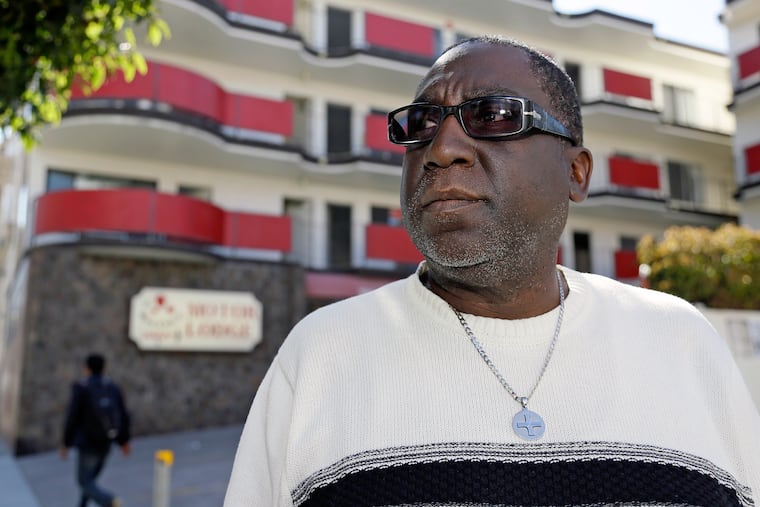The hidden costs of foreclosure: Stabilizing low-income Philadelphia neighborhoods helps us all | Opinion
In 2017, Philadelphia had the third-highest foreclosure rate of metro areas in the United States.

The foreclosure crisis may have eased across much of America, but it's still a problem in lower-income communities, nationwide and particularly in Philadelphia.
In 2017, Philadelphia had the third-highest foreclosure rate of metro areas in the United States at 1.26 percent, more than double the national average of 0.51 percent. RealtyTrac currently reports that there are nearly 7,000 properties in Philadelphia in some stage of foreclosure.
Foreclosure continues to destabilize lower-income and minority communities and affect home values throughout Philadelphia. Historically, Philadelphia's black population built wealth through homeownership in predominantly African American "middle" neighborhoods, where home values ranged from roughly 50 percent below to 50 percent above the city's median home sale price ($96,500).
>>READ MORE: Want to build a better Philadelphia? Expert says to design for ages 8 and 80 | Opinion
However, a 2017 Reinvestment Fund report found that these neighborhoods, including parts of Overbrook, Wynnefield, Cedarbrook and Oak Lanes, are still experiencing a housing crisis. While overall home values across Philadelphia have climbed by a full third since 2000, home sales prices declined 5 percent when adjusted for inflation in these "middle" neighborhoods. And the vacancy rate in these neighborhoods is almost double the rate for Philadelphia overall.
Underwater mortgages are an early warning sign of impending foreclosure issues – and in Philadelphia the problem remains particularly acute for minority home owners. A recent study by Zillow found that roughly one in five mortgages on properties in minority Philadelphia neighborhoods were underwater versus one in ten for non-minority neighborhoods.
Foreclosure is not just a terrible outcome for individuals and families, it has a broad impact on local communities. An empty house on the block reduces the value of all the buildings around it. And as people who once led productive lives in Philadelphia are forced to leave, schools, churches, and local businesses feel the effect. Formerly vibrant communities can become ghost towns.
>>READ MORE: Could part of Fairmount Park become a free food forest for Philadelphians in need? | Ideas We Should Steal
The damage extends far beyond the low-income neighborhoods where foreclosures are common. Middle- and upper-income Philadelphians feel the repercussions in lower overall property values, reduced tax receipts and higher costs for social services and first responders. When families lose their homes, they have trouble participating fully in the economy, holding steady jobs and buying goods and services. That depresses growth for everyone.
The bottom line is that it's in everyone's interest to stabilize communities affected by foreclosure. People in foreclosure come from all walks of life. They are schoolteachers and firefighters, salesclerks and auto mechanics, veterans and parents of soldiers in Iraq and Afghanistan. So what's the right thing to do?
First, we have to start taking principal reduction seriously. Regulators must take a stronger stand to encourage financial institutions to recognize their losses and write down the value of mortgages to current market levels. The tax code needs to include relief for homeowners who receive reductions, so that mortgage relief doesn't create large, unaffordable tax liabilities. And homeowners who do manage to get out from under their underwater mortgages need to be able to repair their credit quickly so that they can reenter the homeownership market and again begin to build the kind of equity that helps create financially stable families.
>>READ MORE: Philly Free Streets is so joyful. What if it happened every single week? | Opinion
And, meanwhile, we can pursue the kinds of public-private partnerships that have proven to reduce foreclosures. For instance, my organization is working with credit counselors and other parties in Philadelphia to acquire properties before evictions occur, then resell these homes to their existing occupants with mortgages they can afford. Through the Stabilizing Urban Neighborhoods initiative, we've kept more than 960 families in seven states facing foreclosure in their homes, reducing their monthly mortgage payments and principal balances, on average, by a third.
Today, as the memory of the financial crisis fades, risky lending practices are reemerging. By providing a sound, alternative form of financing to lower-income borrowers, we can help protect vulnerable communities against future lending abuses. The goal is stronger, more stable Philadelphia neighborhood communities, anchored by high rates of home ownership – a positive outcome for everyone.
Elyse Cherry is the chief executive of Boston Community Capital, a community development finance institution with more than $1 billion invested through initiatives including SUN to build healthy communities.